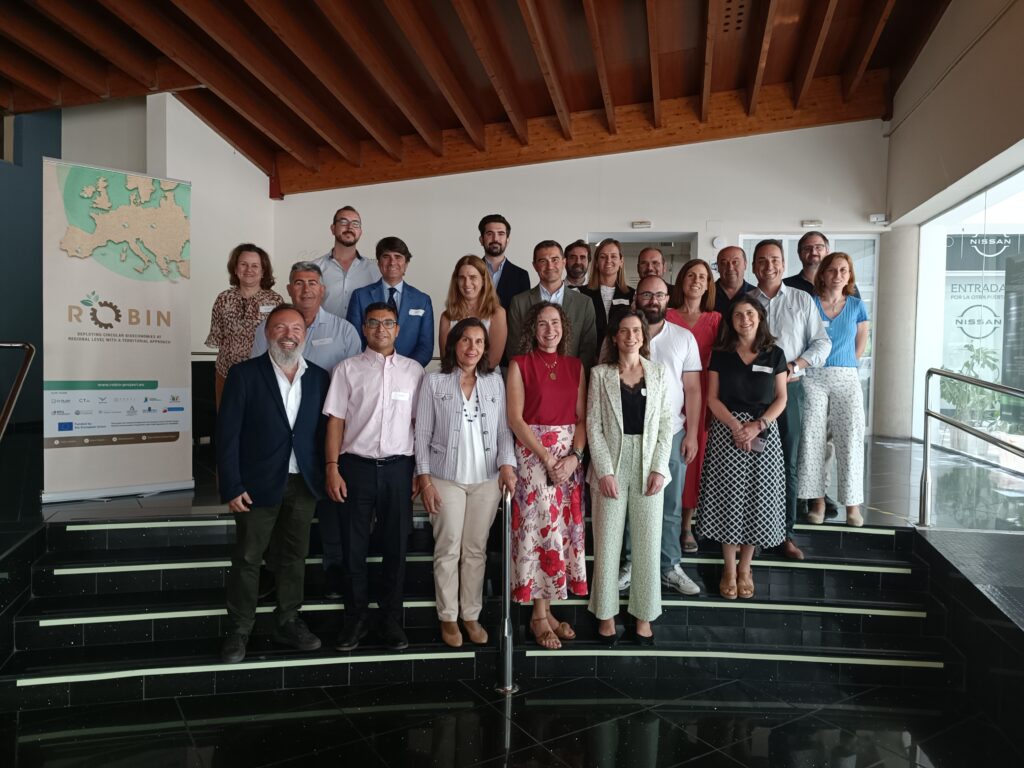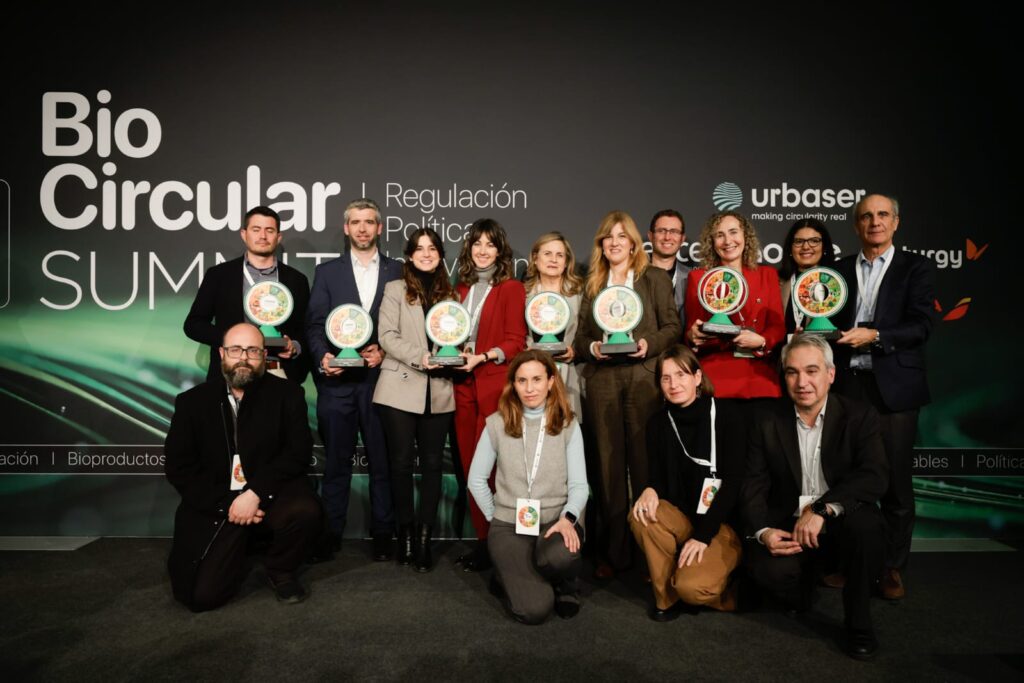The European project ROBIN, funded by the Horizon Europe programme, concludes this August after contributing to the improvement of governance and public management of the Circular Bioeconomy in Europe from Andalusia.

The Andalusian partners leading the regional contribution to the ROBIN project are the Regional Ministry of Agriculture, Fisheries, Water and Rural Development (CAPADR) of the Government of Andalusia, the Andalusian Institute of Agricultural, Fisheries, Food and Organic Production Research and Training (IFAPA), and CTA (Technological Corporation of Andalusia).
The European ROBIN project has promoted innovative governance models in Circular Bioeconomy to support regional administrations across Europe in accelerating the green transition. Andalusia is one of five EU pilot regions that have taken part in ROBIN to promote these new governance approaches aimed at boosting the Circular Bioeconomy, alongside Baden-Württemberg (Germany), Central Macedonia (Greece), the Southern Region (Ireland), and Zilina (Slovakia).
New governance models
The ROBIN project, led by the Greek partner Q-PLAN, has supported European regional authorities in designing governance structures and models to accelerate progress toward their Circular Bioeconomy goals. To achieve this, Multi-Actor Regional Constellations (MARCs) were established, involving key actors from the quadruple helix (academia, industry, public sector, and civil society). These constellations have co-created and collaborated on innovative governance structures that are well-integrated into existing regional frameworks.
In the case of Andalusia, the MARC included representatives from academia such as CSIC-Instituto de la Grasa and the Universities of Almería and Granada; cooperatives such as Ecogestiona and San Isidro de Loja; consumer groups through UCAUCE; and both public enterprises like Emasesa and private companies including Tepro, Grupo La Caña, and La Canastita.
One of the key contributions of the project is the development of a practical toolbox aimed at improving the design, operation, and monitoring of circular bioeconomy governance models. This toolbox is now available for use by other regions interested in adopting or adapting these approaches, beyond the original regions in the project, which have already tested and validated it. Additionally, the project has produced a replication guide for the developed methodology and a set of 20 tailored policy recommendations designed to address the specific needs of European regions.
These resources will be accessible via the project website: https://robin-project.eu/.
Throughout the project, coordination was maintained with the Circular Cities and Regions Initiative Coordination and Support Office (CCRI-CSO) and other complementary European initiatives, to enhance dissemination, foster replicability, and maximize the project’s impact.

The project has also received national recognition in Spain at the first BioCircular Summit, where it was awarded the National Bio-Circularity Award in the Public-Private Cooperation category.
Key role of Andalusia
As a pilot region, Andalusia has played a key role throughout the development of the ROBIN project. In fact, it was showcased as a success story of a regional Circular Bioeconomy model during the European Rural Circular Bioeconomy Conference (EuRCBC) held in Brussels. This high-level event served as the final conference for six European projects related to Circular Bioeconomy, including ROBIN.
The Andalusian partners of the ROBIN project have also coordinated several major events over the project’s three-year duration, such as:
- Various workshops and a panel session included in the official agenda of the Transfiere Forum for two consecutive years.
- A replication workshop of the ROBIN methodology held in Brussels.
- An online regional policy workshop with representatives from the European Commission’s DG Environment and DG Research.
- A mutual learning workshop in Stuttgart (Germany).
- A working group with over 30 Andalusian experts to co-create new governance models for Circular Bioeconomy in the region.
- A meeting in Seville with more than 30 European experts in Circular Bioeconomy.
Andalusia has long shown a strong commitment to the Circular Bioeconomy, being among the first European regions to adopt a specific governance model through:
- The Andalusian Strategy for Circular Bioeconomy (EABC).
- The approval of the Circular Bioeconomy Action Plan in the Agri-Food Value Chain of Andalusia 2025–2030.
Moreover, the Andalusian Circular Economy Law (LECA) sets out the necessary mechanisms to implement policies and regulations in both circular economy and bioeconomy fields.
Recently, the region also established the first Circular Bioeconomy Cluster within the agri-food value chain — a pioneering initiative led by the Government of Andalusia to promote collaboration, innovation, and sustainability in the agri-food sector from a circular perspective.

